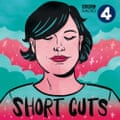The week in audio: County Lines; Shane MacGowan – The Old Main Drag; The Rest Is Classified; Short Cuts – review | Radio

Graph lines (Radio 4) | BBC Sounds
Archive of 4: Shane MacGowan – The Old Main Drag (Radio 4) | BBC Sounds)
The rest is classified (Goalkeeper) | The best podcasts
Short abbreviations (Radio 4) | BBC Sounds
“The first time I bought heroin as a kid was in Leicester in 2001. It was quite shocking then. Of course, this is the norm now. You are more likely to buy children than not.
Of. Radio 4 Graph lines series starts off hard. The spokesperson explains that when he met the young drug dealer, he was “funny, you can laugh at him.” But within six months, this jovial child had turned into something terrifying. “I saw him learning how to be violent. And that was not in his character.” The last time the speaker saw the kid, he hit his head on a lamp post.
Our host for this series is not the spokesperson for buying heroin. This is Phoebe McIndow. She has a light, RP voice; clearly middle class. Her younger brother became involved in the county’s drug trade and became a “double,” someone who looked like her brother but acted like someone completely different. She talks to her father, who also remembers him.
There are 50,000 children in county detention in the UK: the opening episode of this series helps us understand the world they live in. A worthy young man needed money; his family home was without power for days. “People say the lust for money is the root of all evil,” he says. “No. Lack of money creates the problems.”
The sound of the series is unusual: there are moments of silence, skillful use of music and noise, a kind of deadened sound atmosphere. Away from the frenetic analysis of the news. There is horror in these stories and the sound makes us feel it.
Tonight Archive of 4presented by on Observer a journalist Sean O’Haganis all about the late Shane McGowan. What a warm and interesting program this is, with high profile interviewees – Bono, Nick Cave, Bobby Gillespie, Bob Geldof – all visibly softening when talking about MacGowan, his stunning lyrical talent and gift for melody. O’Hagan structured the show around six of MacGowan’s songs, using them to explore life in the Irish diaspora. Archival interviews done for the BBC show embarrassing amounts of stereotyping – an interview about Irish builders working in post-war Britain has someone describing them as “more men of brawn than men of brains”.
MacGowan was a complex character: born in Kent but steeped in his family’s Irish ancestry; lover of traditional Irish tunes, but also punk; a man whose speech was slurred by drink and drugs, but who sang and spoke beautifully and loved deeply. O’Hagan reveals all aspects of the singer-songwriter with elegant insight. It is recommended.
Scorer and The rest is… crew released another two-handed dadcast, this time for spying. Gordon Correra, known to many from his role as the BBC’s security correspondent (he has just left after 27 years), joins former CIA analyst David McCloskey, now an author, for The rest is classified. Their first episode concerns the 1953 coup d’état in Iran, when US and UK spies overthrew Iran’s government. I didn’t know anything about this, but it’s apparently not uncommon among people in the UK. In Iran, however, the coup is still remembered, far from fondly.

The rest is classified has more to do with The rest is history, Goalhanger’s most popular podcast than with, say, The rest is fun (which I love) or The rest is footballas both analyze the here and now. But, I must admit, I am one of the few Rest is history naysayers so this is not for me. I found myself cutting back thinking, “But why Is Britain so arrogant to think it can continue to exploit Iran’s oil?”why do the spies think the shah is better than mossaddeq?” ugh I had no personal sympathy for any of the characters, no matter how eccentric or convincing or well connected. The rest is classified he’ll do well – it’s a good show – but I’m not his audience.
Which brings me back to Graph lines. McIndow and producer Reggie Bernard’s talent is fueled by Short abbreviationsthe brilliant Radio 4 mini-documentary, which the BBC has announced will stop after the next six-episode run (starts on Tuesday). There were many shouts for Short abbreviations during the recent Aria Awards. Led by Josie Long, it’s been going for 12 years now and has produced countless award-winning pieces of audio adventure in its time.

Not every subject needs a sequence or even a half hour specifically. It may only take a few minutes of research and care to make a little gem that sticks in your mind. Short abbreviations is like the indie audio documentary label, the little place where new bands practice playing live. You can’t do without such stairs-steps Imaginary advice Ross Sutherland, recent award winners Thalia Augustidis and Nana Hauge Christensen, or the mighty Axel Kakutierwho has cast a spell on everything from To the guardian Today in focus to The heart.
Every culture needs its strange experimenters, its young outsiders. We all need more than celebrity chats. I have said this in the past Short abbreviations is one of the most important programs on UK radio and I stand by that. Why The BBC is completely beyond me.
A spokesperson for the corporation said: “We recognize that it is vital that new producers in the UK have the space to develop their craft. As a result, we will be expanding the BBC Sounds Audio Lab to include new short-form commissions developed specifically with UK-based audio producers and included in a collection of sounds.”




